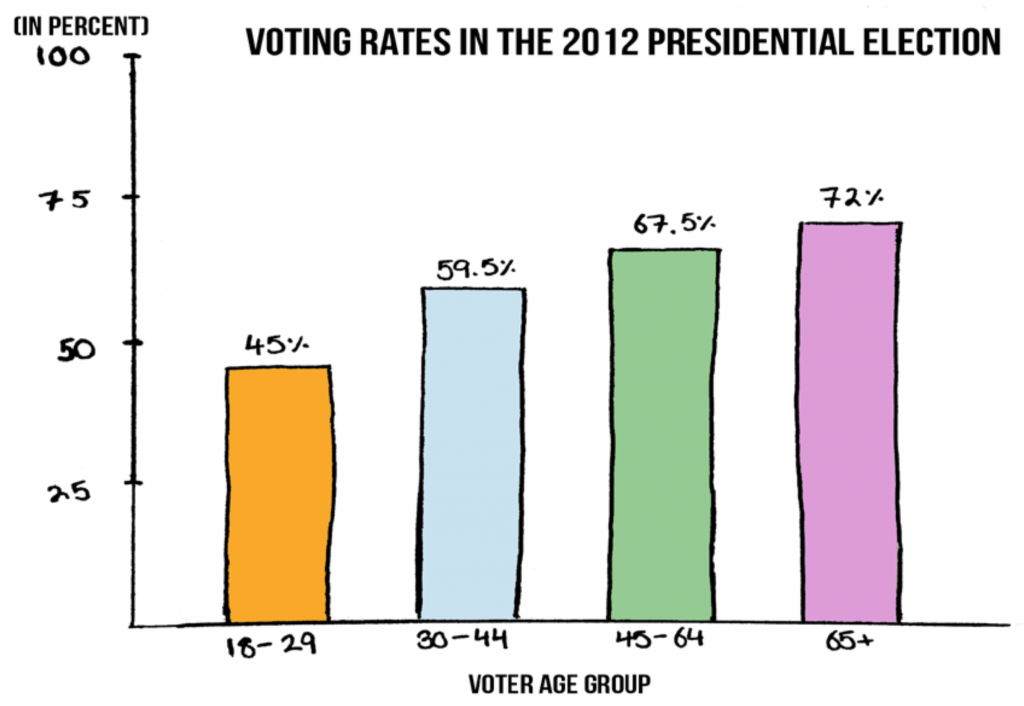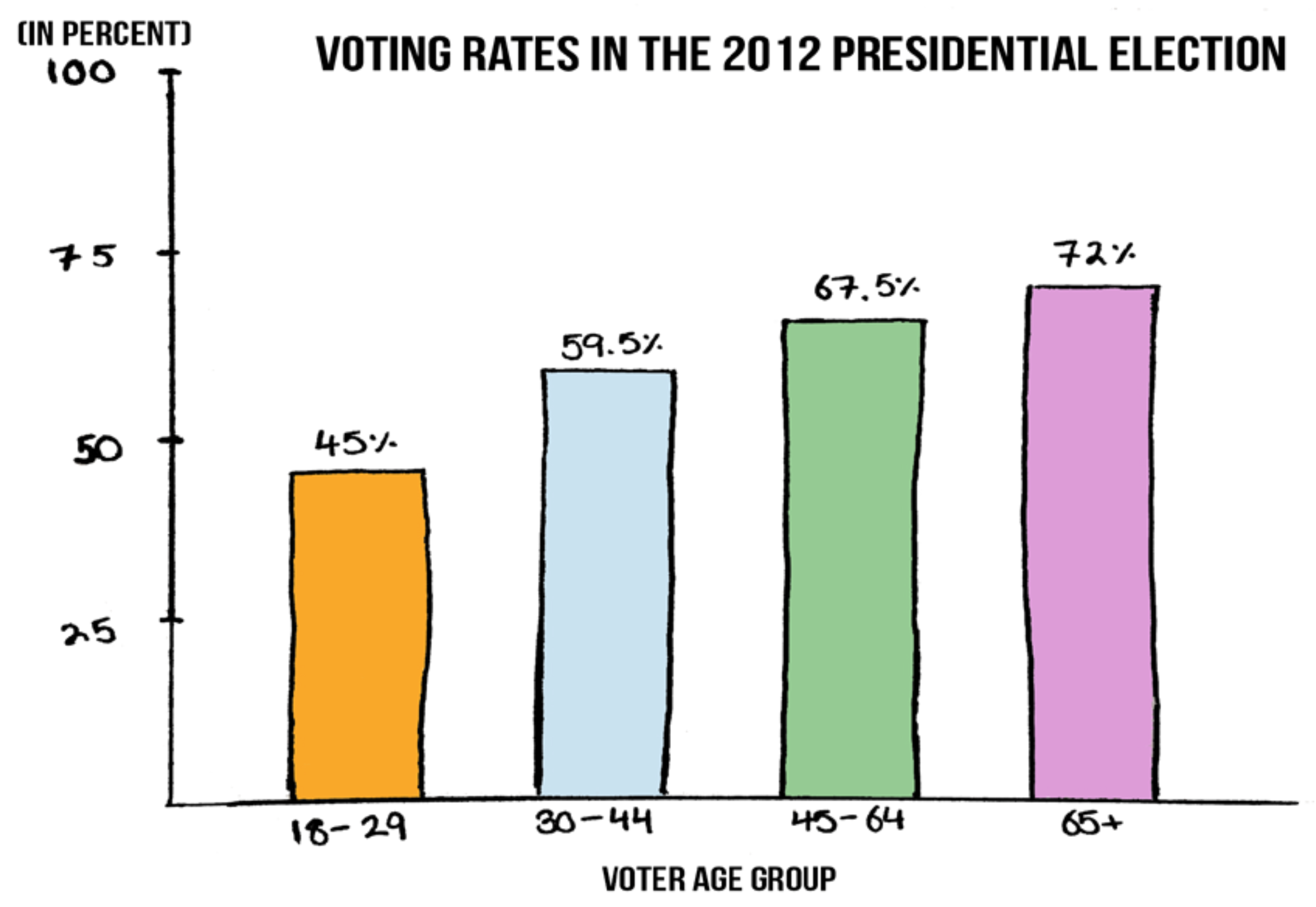Young people, it seems, just don’t like to vote. In the 2012 presidential election, according to the U.S. Census Bureau, 15 percent of voters were young adults aged 18 to 29, despite this age group making up 21 percent of eligible voters. The cause of this disparity is not hard to determine, for only 45 percent of voters between 18 and 29 voted, a rate nearly 15 percentage points lower than that for 30 to 44 year-olds, the demographic with the next-lowest participation rate.
This is not only a problem in national elections. At Georgetown, where politics can seem to tinge everything that happens on campus, the student body shows a remarkable degree of apathy toward electing its campus representatives. This past spring, 3,637 students—just under half the undergraduate population—voted in the GUSA presidential election.


Eleanor Sugrue
As the presidential primary season gets underway and the GUSA Executive election season returns, this Editorial Board asks you, quite simply, to care and to demonstrate that care by voting.
Campaign speech is often empty. Incessant appeals for support are annoying. Perfect candidates rarely, if ever, appear. All of this and more can serve to discourage a potential voter, but we do not demand that you fall in love with the messy business of campaigning. Instead, we ask only that you keep yourself informed—even if at a distance—and make your contribution to the ballot box on election day.
Here at Georgetown, apathy toward campus politics is easy to come by. And while GUSA, like any institution of its nature, has imperfections, none of its issues will find solutions in an indifferent student body. Instead, this can only serve to weaken the ability of GUSA to affect changes that will benefit Georgetown students. Whatever power GUSA has, it takes directly from its ability to claim the support of the student body. The administration can much more easily disregard the opinions of GUSA—and by extension those of the wider student population—when students tune out the campus decision-making process.
On the other hand, when the student body participates and makes its concerns known to the administration, university policy tends to more fully consider student interests. We saw this in action two years ago, when GUSA harnessed student reaction against the idea of creating a satellite campus and push the University to ultimately settle on another option. Given greater backing, GUSA can more forcefully pursue the goals of the student body. If one believes GUSA does not accomplish enough, then the simplest way to address this problem is by increased engagement, not by neglecting to participate in the campus political process.
In this way, students can ensure that the institution designed to amplify their role in deciding campus policy is not pushed aside. But, at the end of the day, we do not vote for institutions, we vote for people. At the national level, our elected officials represent our country to the world. Here on campus, the members of GUSA serve as the focal point of interaction between the administration and the student body. The stakes at play are vastly different in these two spheres, but the principle is the same. Given that these are people who both shape and communicate our interests, it is irresponsible not to consider carefully who we allow to sit in elected offices, and even more neglectful not to participate at all.
The unfortunate reality is that no perfect option is about to emerge. Yet waiting on the sidelines for some impossible ideal seems an impractical way to go about democratic governance, and we find it strange that the youngest group of eligible Americans are the ones who seem to be most disillusioned with the electoral process. There is no arguing with the numbers, however, and some mixture of cynicism and indifference is clearly keeping young people at home on election day. This pattern can only serve to hurt young people, as we risk leaving ourselves underrepresented in national politics due to our lack of involvement. Cynicism is both self-defeating and self-fulfilling, for the less young people vote, the less leaders must account for our interests.
In a few weeks, Georgetown will decide who will become its next student body president. Then, in less than a year, people across the US will go to the polls to elect the next leader of this country. We will be there on both days to make our concerns known. We hope, for our sake and yours, that you will be too.






In hindsight this article is hilarious. If only more students had voted in the one-ticket GUSA-insiders-only election maybe their civic engagement would have resulted in a more effective GUSA….